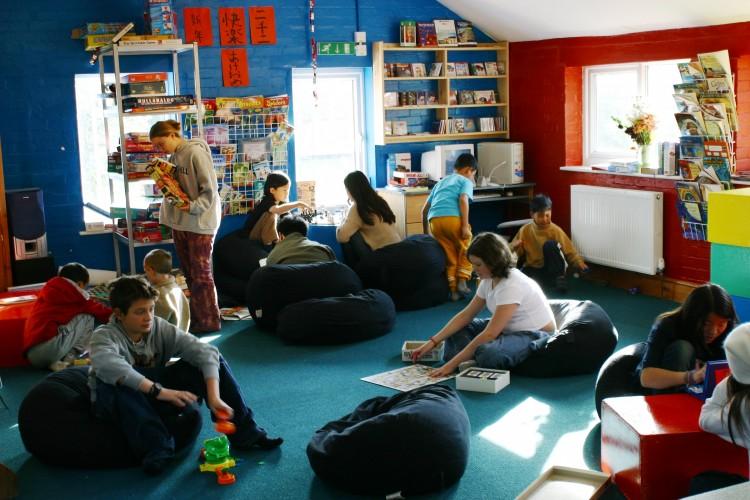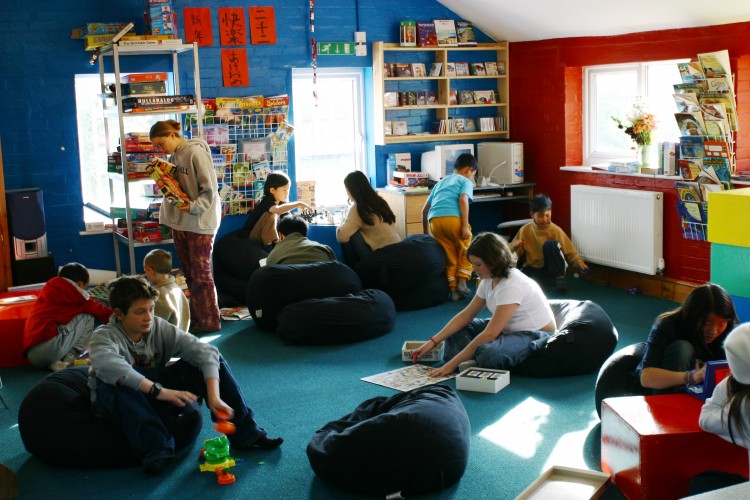Positive Outcomes for Pupils of Britain’s Most Radical Schools
Summerhill and Steiner school pupils tend to find that “their needs in life are fulfilled in what they themselves choose in their own hearts,” says mother of two Steiner-educated children.

Children relaxed and absorbed in the Summerhill school cafe. Courtesy of Summerhill School
|Updated:







